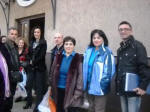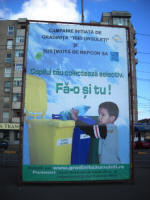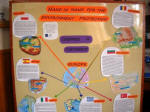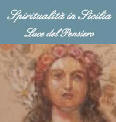Home - Didattica - Progetti Europei comenius - Hand in hand for the environment protection
The
Liceo Regina Margherita in Palermo
Partecipants in Europe
Reasons and motivation
Objectives
Added value
Outcomes and results
The relevance of the project
Distribution of tasks
Cooperation and communication
Planning implementation and evaluation of project activities.
Integration to ongoing
activities
Evaluation
Dissemination of the results
The Liceo Regina Margherita in Palermo
 Our school is situated in Palermo, the capital city of
Sicily. It is located in the old historical centre of the town, a
disadvantaged area from the social, cultural and economic point of view with
a high rate of unemployment and microcriminality. The area is inhabited by
many non-European and immigrant families therefore we have in our school
Chinese, Indian, African and other ethnic minority students.
Our school is situated in Palermo, the capital city of
Sicily. It is located in the old historical centre of the town, a
disadvantaged area from the social, cultural and economic point of view with
a high rate of unemployment and microcriminality. The area is inhabited by
many non-European and immigrant families therefore we have in our school
Chinese, Indian, African and other ethnic minority students.
These students have sometimes social problems and difficulty with adapting
to the educational system. A correct attitude of respect towards the
territory in which they live would be good either for them or for their
families. The environmental education will be used as a tool for
communication with these children as well as therapy in order to make them
become a good example among their peers and in their micro-society.
Due to the high rate of immigrant students, language is a problem English
courses for the teachers and students co-operating in the project will be
arranged in our school. As we all need to be helped in understanding the
whole situaton in ecological terms, experts in the fields will be used to
give instruction.

Partecipants in Europe
 Schools from different parts of Europe: Spain, Turkey,
Poland, Bulgaria and Italy, coordinated by Romania have decided to initiate
the Comenius multilateral partnership “Hand in hand for the environment
protection”.
Schools from different parts of Europe: Spain, Turkey,
Poland, Bulgaria and Italy, coordinated by Romania have decided to initiate
the Comenius multilateral partnership “Hand in hand for the environment
protection”.
We aim to develop environmental conscience in our pupils and as a result in
the future to achieve a number of effects like less resource use, less
waste, more energy saving. We will do this through interdisciplinary
approaches, efficient partnerships and multicultural perspectives. This will
empower individuals and institutions to contribute to sustainability.
Thus we want to carry out some activities which will lead to reaching our
objectives. The main activities are: different surveys regarding organic/
inorganic food consumption, water and energy consumption and ways of
transportation in every family and in every country involved in the project,
research about deforestation, water pollution, exhaust fumes pollution,
traditional sources of energy and alternative renewable sources of
energy,experiments with energy and visits to places for renewable sources of
energy,art exhibition and fashion show made of recycled materials and
voluntary activities.
The final products will be a brochure which will comprise most of our work
results, a web-page and a CD with the results of all the surveys developed
during the project. We will also make different leaflets and posters.
By our activities and final products we believe that we will manage to make
our pupils to become eco-friendly consumers and to promote similar behavior
in their family and community. We will create an awareness of the impacts
and effects of behaviors and lifestyles - on both the local and global
environments, and on the short-term and long-term.

Reasons and motivation
Nowadays we live in a world which is more and more
affected by the consumerist lifestyle which many people adopt. Day by day
local problems are transformed into international issues , so that almost
all countries are affected by major environmental problems.
We believe that our world chance is in environmental education for the today
pupils who will be the tomorrow adults. We know that we will not change the
whole world by one single project but we are taking a first step and that's
what our planet needs. Small steps made by pupils and their families in some
European countries, will lead for sure to a better future for the whole
world.
We want to make pupils gain awareness of the environment and acquire
knowledge, skills, values, experiences, and also the determination, which
will enable them to act - individually and collectively - to solve present
and future environmental problems.
It's obvious that due to the increasing pollution our planet faces some
critical problems like: global warming, land degradation, greenhouse gases,
acid rain,water pollution,ozone depletion. These are all consequences of the
human behavior and lifestyle and they are common problems for all the
countries.
We will determine our pupils to actively involve in exercising their skills
of environmental citizenship, to become eco-friendly consumers and to
promote similar behavior in their family and community.
As our pupils are at the beginning of a new stage in their life, a stage
when they should define a goal for their future, maybe even decide which job
fits them. We offer them the opportunity to make good choices maybe in the
field of alternative sources of energy or in fields which promote a
conscious attitude towards the future of our planet.
We will achieve these through the activities which we will carry out and
that' s why we need this project.

Objectives
The concrete objectives of the partnership are:
O1- to make the pupils aware of their own role as consumer and its
consequences;
O2- to give the pupils a wider knowledge and awareness concerning their own
consumption and daily use of energy;
O3- to give the pupils knowledge about the environmental problems which our
planet faces nowadays and their causes;
O4- to bring knowledge about the alternative sources of energy and promote
them;
05- to make pupils change the attitude towards the energy consumption and to
replace bad habits with good ones;
O6- to help pupils acquire the action competence or skills of environmental
citizenship
07- to develop the research and teamwork abilities for pupils;
O8- to create a multicultural experience for the pupils.
We intend to address to the following subjects and problems:
a) The increasing pollution as a consequence of human behavior and choices.
b) The necessity of changing our daily habits and lifestyle for a
sustainable future
c) Common pollution problems like global warming, land degradation,
greenhouse gases, acid rain,water pollution,ozone depletion, as consequences
of exhaust fumes, deforestation, mountains of garbage, urban, industrial and
agricultural pollution etc
d) The traditional resources like coal, petroleum, natural gas are in short-
supply and exhaustible
e) The necessity of using alternative sources of energy
Our approach to reach the proposed objectives can be described in the terms
of some activities and final products.
- We will carry out some surveys regarding organic/ inorganic food
consumption, water and energy consumption and ways of transportation in
every family and in every country involved in the project.( O1, O2, O5, O7)
- We will gather information and make research about deforestation, water
pollution, exhaust fumes pollution, traditional sources of energy and
alternative renewable sources of energy ( O3, O4, O7)
- Students will make experiments with energy and will visit places for
renewable sources of energy (O4)
- We will give our pupils opportunities to be actively involved in
exercising their skills of environmental citizenship through
cleaning campaigns, a planting trees activity, art exhibition and fashion
show made of recycled materials, bike ride, designing and delivering
leaflets which promote eco-friendly behavior (O6, O7)
We will provide a multicultural environment for our pupils to search and
find solutions for environmental problems ( O7,O8)

Added value
Pupils and teachers from different countries of Europe will work together to
provide common answers to common problems. They will realize that they are
part of a large European family as citizens of the European Union. Thus,
their multicultural empathy will be intensified.
The pupils will be provided with opportunities to compare and contrast their
lives with other European children. They will become more familiar with
traditional customs and daily habits in various countries of Europe. The
pupils will broaden their knowledge about partners' countries concerning:
geography, history, ecology, politics, religion, traditions. They will be
able to overcome stereotypes and shape their personality to become more
conscientious European citizens.

Outcomes and results
We expect our partnership to have a major impact on as many parties as
possible.
The pupils as the direct beneficiary of the partnership will have the
opportunity to communicate with pupils from other European schools and to
take part in a multicultural experience. By offering them the opportunity of
getting involved in a project like this, we expect to develop learning and
communication abilities, to improve the foreign languages, (especially
English but not only), to improve the ICT abilities, to stimulate teamwork
and to encourage the interest in some extracurricular activities. The pupils
will develop knowledge and understanding of the diversity of European
cultures and languages. They will also understand better the problems the
environment faces nowadays, and will become more responsible consumers and
will also promote this attitude into the community.
The teachers as indirect beneficiary of the partnership will improve their
theoretical knowledge and practical skills, but most of all they will have
the possibility to find the similarities and difference in European
educational system and to open to new perspectives. Not least they will be
stimulated to use and learn at least one foreign language and to manipulate
modern electronic techniques, and through all these they will contribute to
the development of educational services.
The headmasters will become aware of the differences in the educational
management in schools from Europe and will be able to adapt some tested
methods in their schools.
The institution will also develop, through its teachers. Better teacher
means better educational services. This partnership may be the first step
through a beautiful cooperation and professional interact. The involved
schools can develop other projects or activities in the future.
For parents and local community this partnership could represent the choice
of becoming responsible consumers. The parents will have the chance to learn
from their children about saving the resources.
By mediating these partnerships we hope that the community will also become
aware that these environmental problems are real and that we all have a
responsibility for them and have the power to create a cleaner world.
We expect that our project will have an impact on the educational community
of our region. We will encourage our colleagues to apply for other projects
too, being a positive example.

The relevance of the project
Environmental problems are common issues in all the involves countries. We
have local environmental problems which become global issues. In order to
make pupils aware of the problems our planet faces nowadays and determine
them to become responsible consumers we will use new approaches, ICT
knowledge and we will activate English vocabulary in a real context. The
mobilities for both pupils and teachers, will bring knowledge and
understanding of the diversity of European cultures.

Distribution of tasks
All the schools involved in the project will cooperate and will have the
same importance in the decisions to be taken. The Romanian school as project
coordinator will represent the link between all the partners but the project
work will be equally divided between the participating schools. Each school
will form a multidisciplinary project team formed by teachers and pupils.
The tasks between each project team members will be divided by each school
coordinator. This team will carry out the activities, will gather and
synthesize the information of the work produced. The work results and
conclusions will be send by e-mail to the coordinator school and then to the
other schools to exchange the information.

The coordinating school we’ll be in the middle of the partnership sending
and receiving proposal, ideas, opinions between all the partners.
Every school will have approximately the same project activities agenda and
the same deadlines. All the materials will be sent to the project
coordinator, who will distribute the tasks to each school coordinator. Every
school will get the task to put together one final product (brochure,
booklet, CD, web site) according to its potential. Each final product will
be revised by the project coordinator and sent to each partner. All the end
products will be in the English language. Each partner will be responsible
for translating them into their native language, according to their needs.
Concerning project meetings which will take part in several partner schools,
the schedule for project discussions will be prepared by the project
coordinator and will be completed with school activities and social meetings
by the host school coordinator.
During teacher exchange each school coordinator will make the schedule for
its guests.

Cooperation and communication
Taking into account the fact that the schools involved in this project speak
different languages we agreed to use English language as communication
language in this project. Up to now we communicated by the internet after we
found each other on educational sites where we had registered our schools.
For a better communication the project coordinator created a data base with
all the schools involved in the project.
When we begin the project's activities we will use all the communication
ways necessary to have the best results. Thus, we will create a yahoo
discussion group where all the partners will be logged in. This way any
message will be automatically sent to all partners. We will settle a day per
week when all the school coordinators have to check their electronic
correspondence (so that all the messages are read on time) and a day per
month to have a chat conference with all the partners. Using the e-mail and
the chat conference we will speak about the tasks, about the
accomplishments, the problems and difficulties we met and we will make
suggestions and find solutions. So, the cooperation and communication will
be mainly at distance through the use of the internet (chat , e-mail
sending, text and image files, audio and video files, Word format files and
pdf files ) both on the students and teachers' side.
The partners will inform each other by periodical bulletins on the project's
web site, too. During the project meetings we will communicate face to face
setting tasks for the following period, evaluating the previous activities,
presenting results and materials and discussing the problems we have met and
the solutions.
In case of emergency we will use the telephone as a faster and more accurate
way of communication even though the costs will be higher. It is also
necessary to use the postal services to send official documents and some
final products.

Planning implementation and evaluation of project activities.
Our partnership is mainly focused on pupils involvement so they will be
active in all the important phases of the partnership. During the planning a
questionnaire about the environment protection and the alternative sources
of energy was filled in by some students in the coordinating school and
according to the results we decided to work on this topic.
At the beginning of the project each coordinator in every school will
establish a project team formed by teachers and pupils. So the pupils will
participate to the planning and organizing of the activities in each school.
According to their interests and competence pupils will be given special
tasks during the project. They will carry out surveys about food packaging
in each country, about eating habits, about the water consumption in each
student's house,about deforestation, energy consumption in school and in
town, about means of transportation and the pollution produced by each and
about alternative sources of energy. The students coordinated by teachers
will draw conclusions and will find solutions. They will exchange the
results of the surveys with colleagues from the partner schools. The
students will work supervised by the teachers to design leaflets, to make
Power Point presentations, drawings, posters. All the materials displayed in
the Comenius Corner will be prepared by the pupils. They will even
participate to the design of the project web site. The items made from
recycled objects for the fashion show will be prepared by the pupils too.
They will deliver leaflets about the project's theme, will plant trees in
voluntary activities and will participate to the bike ride together with
their teachers. The pupils with the science teachers will carry out
experiments with energy in each school during science classes: sun, water
and wind energy, dynamo energy.
They will participate to the design of the final products. Representatives
of the pupils will take part in the mobilities together with their teachers.
They will express their impressions about different activities on the
project web site and in the schools magazine.
At last, evaluation and self-evaluation forms will be made and will be
filled in by pupils.

Integration to ongoing activities
The theme of the project makes the activities quite easy to integrate into the curriculum. So, the the activities connected to the project will be carried out during daily school lessons. The project will have positive effects in the normal didactic activity with its variety of activities. Multidisciplinary theme of the project will make it easier to use in many subjects. Thus we will work during the Chemistry lessons to discuss organic and inorganic food and the effects of plastic packaging versus paper packaging. During Geography lessons we will develop the activities connected to water and forest. The diagrams and the conclusions which result from the surveys will be accomplished during the Math and ICT classes. The foreign languages classes have some planned activities about the environment, the pollution effects and the way we can contribute to a cleaner planet, so we can develop the project activities during English and French classes. During the Physics and Electronics classes we will carry out experiments with energy in each school during science classes: sun, water and wind energy, dynamo energy. Some of the posters and the art objects for the exhibition and the fashion show will be designed during Art classes.The informatics classes will be used to create the project web site and during these classes we can communicate with the partners. The students can change results and opinions using the internet communication. We will also encourage voluntary work by some of the activities carried out during the project.

Evaluation
We will have evaluation during the project time but also at the end of it.
Thus, each project coordinator from the partner schools will be responsible
with the project evaluation in his school. Of course that the coordinator
school will take care that this evaluation will have common instruments for
all the partners. We will create a questionnaire during the first project
meeting which will be filled in by each project team member at all
key-moments in our partnership .
The evaluation will be continuous because we want to see in time what has
already accomplished and what needs more emphasis , so that at the end of
the project all the proposed objectives will be achieved and the project
will have the expected impact.
So, in each school involved we will administer questionnaires to check the
project's impact. We will have questionnaires for the headmasters, for the
teachers in school and for all the pupils in each school. More than this the
pupils involved in the project will be administered satisfaction
questionnaires.
The project teams will also get questionnaires about the way the project's
activities were carried out, about the problems they got and the way they
solved them. The questionnaires for the project team will be administered to
every international project meeting.
Every school partner will keep a project diary to follow the daily "pulse"
of the project ; the information from the diaries will be used by the
coordinator to fill in a common diary which will be completed once a month
with the information sent by each school.
Another way of evaluation will be the pupils portfolios. These will comprise
their surveys and the conclusions of them, the satisfaction questionnaires,
the materials they designed like posters, drawings, leaflets etc and their
impressions about the activities during the project.
The evaluation of the impact upon the local community will be made by the
open public presentations, by the public project's activities ,by
questionnaires administered to the parents and by the surveys administered
by our pupils in the local community.
All these items ( impact questionnaires, satisfaction questionnaires,
intermediary activity reports, detailed descriptions of the activities,
short description of the disscusion groups, observation sheets, the external
evaluation of the project, materials made by the pupils) will be part of a
special portfolio very useful in different meetings, presentations and
evaluation.
Dissemination of the results
The activities, the results and the products of this project will be
disseminated during the project and also at the end of it by promoting the
final products. The dissemination will take place at school, in the local
community and in the lifelong learning community.
So each school involved in the project will have a place dedicated to the
Comenius project - the Comenius Corner. In this place all the activities
developed during the project and the results will be promoted so that all
the pupils in school can find information about this. We will also
disseminate the information during the Comenius week which will be
celebrated in each school involved. The teachers involved in the project
will present periodically these activities and results to the school
councils, to the teachers meetings and also to parents meetings. Articles
about the way the activities were carried out will be published in each
school's magazine.
For the local community we will promote the activities and the results in
the local mass media, to the periodical meetings held by the schools'
headmasters in the county, to the pedagogical meetings between teachers in
the city, to different educational activities organized by the local
authorities.
The project will also be promoted in the local community by some activities
carried during the project like: delivering leaflets on different topics for
the people on the street, voluntary activities, fashion show with clothes
made of recycled objects. Some of the project's products will be delivered
to the interested schools in the city.
To disseminate the project to the national level the teachers from the
project team will present it to different scientific conferences or to any
meeting organized by the National Agencies if possible. We will post
information about the activities and the results on educational web site for
teachers.
The results will also be promoted at the end of it, through the contest "
Made for Europe".
The project's web page that will contain the project activities in detail,
the results and the impressions of the pupils and teachers involved, is a
great way to disseminate the project activities while they are carried out
and after its finalization. This page can be accessed by those interested
anywhere in the world.








 Il Regina
Margherita di Palermo fra storia e cronaca
Il Regina
Margherita di Palermo fra storia e cronaca SCARICA IL VOLUME
SCARICA IL VOLUME